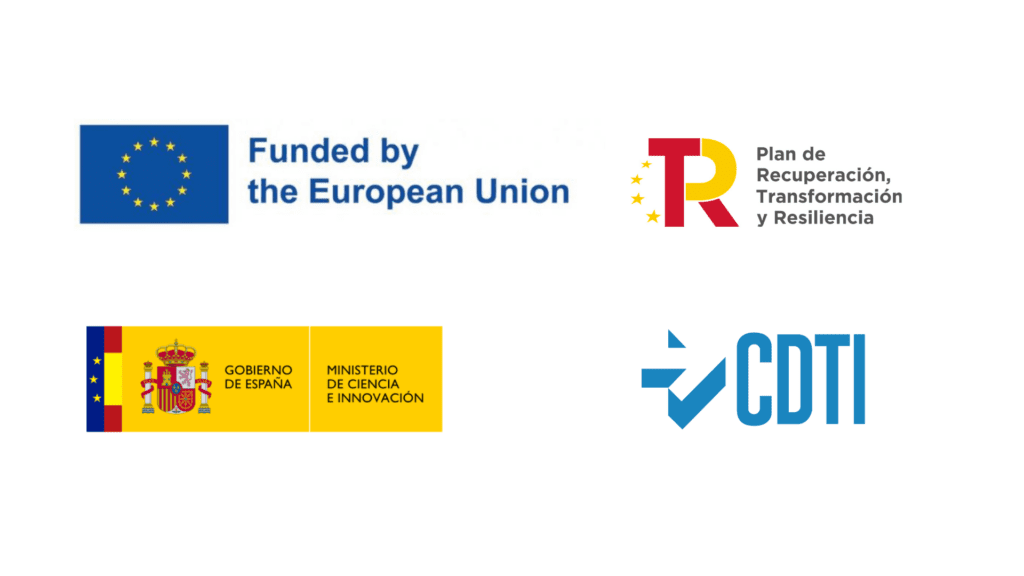

The Game-Changing Nutrition Plan Every Runner Needs
Hello runners! 👟 Are you ready to elevate your training and nutrition game to unprecedented heights?
After engaging in insightful conversations with ultratrail world champion Nuria Picas on our podcast and conducting extensive studies with marathon and ultratrail runners, we’re thrilled to present this comprehensive guide.
It’s time to propel your running experience to new frontiers by optimizing your nutrition strategy for races of varying distances: be it the swift 5 km, the enduring marathon, or the challenging ultratrail. Strap in and get ready for a transformative journey! 🚀
1. Short distance races (5 to 10 km)


Before the Race:
🔥 Complex Carbohydrates: Eat a carbohydrate-rich dinner the night before to replenish muscle glycogen stores. You have to make sure that there is always a good portion of protein as well. Some options:
- White rice with grilled chicken.
- Baked sweet potato and carrot with mackerel and guacamole.
- Mashed potatoes with hard-boiled egg and sardines.
💧 Optimal Hydration: Ensure optimal hydration and supply of essential minerals, such as sodium and potassium.
- Natural water with a pinch of salt added.
- Coconut water for an extra supply of electrolytes.
- Chicken or vegetable broth. Another good option is a bone broth for an extra supply of collagen and minerals.
During the Race:
🚰 Continuous Hydration: Drink water in small amounts to maintain proper hydration. Small sips of water every 15-20 minutes.
- Water of time.
- Water with a pinch of salt to help maintain the balance of mineral salts.
- Low-sugar sports drinks for quick carbohydrate and electrolyte replenishment.
🍬 Energy Gels: It should not be necessary with good preparation, but if the body asks for it, it can be taken to maintain glucose levels; as long as there is good digestive tolerability and it has been tested in pre-race training.
- Gel with a mixture of transportable carbohydrates, e.g. glucose: fructose or maltodextrin: fructose.
- Electrolyte gel to combat fatigue and maintain hydroelectrolyte balance.
- Carbohydrate and amino acid gel to support muscle endurance.
After the Race:
💦 Rehydration: Adapt the fluid intake to the hydration losses that have occurred during the race.
- Isotonic drink with sodium, potassium and magnesium to achieve good intracellular rehydration.
- Homemade sports drink with a mixture of water, electrolytes and sugars.
🍗 Fast Proteins: Promotes muscle recovery.
- Protein shake with skimmed milk or plant-based drink.
- Greek yogurt with berries, nuts, and whole grains.
- Chicken salad with rice and spinach.
2. Marathons or medium distances (between 20 and 42 km)


Before the Race:
🍝 Carbohydrate Loading: Start 2-3 days before.
- Wholemeal pasta with tomato sauce and minced meat.
- Brown rice with chicken curry and sautéed vegetables.
- Roasted potato and sweet potato with salmon and broccoli.
🥗 Balanced Meal: Carbohydrates, lean proteins, and healthy fats.
- Rice salad with avocado, chickpeas and grilled chicken.
- Fish tacos with corn tortillas and guacamole.
- Scrambled eggs with salmon and avocado.
🍬 Supplementation: There are some ergogenic aids to consider before a race.
- Caffeine
- Creatine
During the Race:
🚰 Hydration and Electrolytes: Water and electrolyte drinks.
- Natural water to maintain hydration.
- Sports drinks with electrolytes to replenish sodium, potassium, and magnesium lost during the race.
- Coconut water for extra hydration and is naturally rich in electrolytes.
🍬 Supplementation: Continuous Fuel: Gels every 45-60 minutes.
- Caffeinated energy gels for an extra boost.
- Energy bars with a combination of carbohydrates and proteins.
- Ripe bananas for a quick supply of carbohydrates and potassium.
After the Race:
💧 Rehydration and Recovery: Water with electrolytes and balanced food.
- Water with electrolytes to restore hydroelectrolyte balance.
- Fast-assimilating protein shake with whole milk or plant-based drink to start muscle recovery.
🍝 Immediate Recovery:
- Quality bread with sardines or canned tuna.
- Ripe banana for an easy-to-assimilate carbohydrate supply.
🥗 Subsequent Meal (2-3 hours later):
- Grilled chicken with potato and spinach.
- Rice and lentil salad with avocado and cherry tomatoes.
- Bone broth with egg and baked pumpkin.
🍬 Supplementation:
- BCAAs (branched-chain amino acids) to support muscle repair.
- Casein shake for a slow release before going to sleep and promote a constant supply of amino acids during the hours of rest.
🤸 ♂️ Stretches and Foam Roller: Facilitates muscle recovery.
- Leg, back, and neck stretches to improve flexibility.
- Foam roller to massage and relax the muscles.
- Yoga or Pilates with exercises focused on muscle recovery and injury prevention.
3. Ultratrails or long distances (50 km or more)


Before the Race:
🍚 Extended Carb Loading: Start a week earlier with a high-carb diet and a few reload days.
- Quinoa and rice risotto with mushrooms and spinach.
- Bowl combined with rice, beans, potato, chopped chicken and tomato sauce.
- Pasta salad with sweet corn, canned tuna and zucchini.
🥣 Fractionated Meals: Maintain a constant supply of nutrients and ensure good muscle glycogen stores.
- Protein shakes with milk or water, berries, and bananas.
- Rice or corn cakes with quality turkey slices and avocado.
- Chickpea hummus with carrot sticks as a snack.
🍬 Supplementation:
- BCAA Supplement
- Creatine
During the Race:
🍲 Continuous Nutrition: Gels, energy bars, and fruits with fast-absorbing, low-fiber carbohydrates.
- Energy gels combined with solid foods such as nuts and energy bars.
- Ripe bananas or grapes for a quick and easy supply of carbohydrates and antioxidants.
- Dried fruit with a high contribution of simple carbohydrates.
🚰 Strategic Hydration: Adjusts according to weather conditions.
- Natural water of the weather.
- Water with a pinch of salt to maintain electrolyte balance.
- Sports drinks with a mix of different types of carbohydrates and electrolytes for more complete hydration.
🍬 Supplementation:
- Caffeinated energy gels to maintain focus and endurance.
After the Race:
🥣 Immediate Recovery:
- Protein shake with whole milk or plant-based drink.
- Bananas for a quick supply of carbohydrates.
- Water with sugar and salt.
🍲 Subsequent Meal (2-3 hours later):
- Potato salad with avocado, lentils and chicken.
- Chicken soup with whole grain noodles and vegetables.
- Salmon wrap with avocado and vegetables.
💦 Rehydration and Complete Nutrition: Fluids and foods rich in carbohydrates and proteins.
- Protein shake with whole milk or plant-based drink.
- Smoothie with berries and bananas.
- Bone broth with lemon juice for a supply of vitamin C and collagen.
🍬 Supplementation:
- Glutamine supplement to aid in muscle recovery.
- Creatine Supplement
- Casein shake before going to sleep for a continuous release of amino acids and to promote proper muscle recovery.
🚶 Active Rest: Walk or swim to facilitate recovery.
- Light walks to improve circulation and facilitate recovery.
- Stretching exercises and yoga to relieve muscle tension.
- Foam roller to massage specific areas and reduce stiffness.
General Supplementation for All Distances
- Electrolytes
- BCCAAs (branched-chain amino acids)
- Multivitamins in case the athlete has a deficiency
- Vitamin D in the cold months and little sun exposure
- Creatine
Additional Exercises
🏋️ ♂️ Strength Training: Strengthens muscles and prevents injuries.
🤸 ♀️ Flexibility and Mobility: Improves range of motion.
Remember to adapt these guidelines to your needs and consult a health professional or nutritionist for personalized guidance. Let’s run!


